Performing Arts
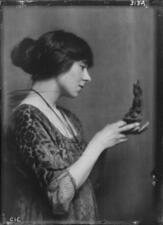
Fania Marinoff
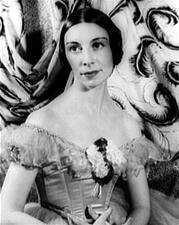
Alicia Markova
Dame Alicia Markova, Britain’s first and the first Jewish prima ballerina, combined amazing technique and personal strength with tremendous artistry to become one of the finest classical dancers of her generation. Through her touring and early recognition of the power of mass media, she was also one of ballet’s greatest ambassadors in the mid-twentieth century. Markova extended her legacy through choreography, teaching, and commitment to coaching the next generation of dancers.
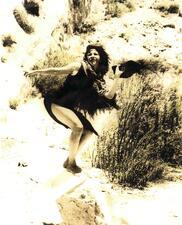
Hester Martinez
Hester Rose Martínez Nardea is a Mexican dancer, teacher, choreographer, director, promoter, and administrator. She is currently the director of the International Festival of Extremadura Dance-Contemporary Language and is the founding director of WIROMA Circle Dances.
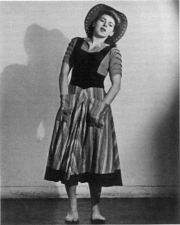
Sophie Maslow
A leader of the New Dance Group, Sophie Maslow was among the generation of dancers involved in the labor movement of the 1930s. Maslow saw her work as inspired by a personal heritage rather than by political ideology; she believed that dance “could enrich the lives of workers in and of itself.”
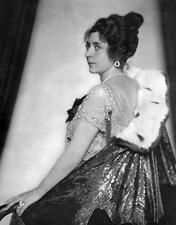
Fritzi Massary
Fritzi Massary was a prominent singer in Berlin prior to the onset of World War II. She reigned over the Berlin stage, singing the title role in Franz Lehar’s The Merry Widow and Adele in Johann Strauss’s Die Fledermaus. Among the works created especially for her was the operetta Die Kaiserin by Leo Fall.
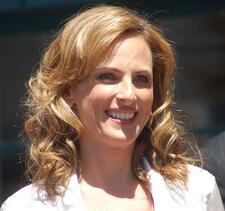
Marlee Matlin
Marlee Matlin’s Oscar-winning film debut in 1986’s Children of a Lesser God made history on multiple fronts. At 21, not only was Matlin the youngest-ever Best Actress winner, she was also the first Deaf actress to be recognized by the Academy. Her subsequent career in film and television, as an author, and as an activist for the Deaf community, has paved the way for inclusive, nuanced storytelling that showcases Deaf culture to hearing audiences.

Elaine May
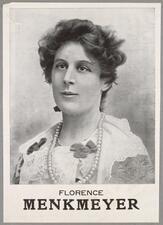
Florence Menk-Meyer
Australian pianist Florence Menk-Meyer took Europe by storn with her musicianship during her first visit there in the 1880s. She was a favorite of audiences overseas and in Australia for many decades, her achievements as a pianist compared to Liszt and other legendary masters
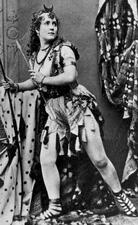
Adah Isaacs Menken
In her short but remarkable life, actress Adah Isaacs Menken became legendary for her scandalous defiance of convention. One of the most glamorous celebrities of the 1860s, Menken also cultivated a literary following. She wrote poetry and developed relationships with Walt Whitman and Charles Dickens, among others.
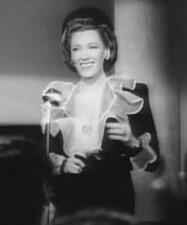
Helen Menken
One of the finest actors of her day, as well as a producer and a philanthropist, Helen Menken devoted her entire life to the American theater. While she was known for playing a lesbian in The Captive, for which she was arrested during a performance, and her role as Elizabeth I in Mary of Scotland, her biggest contribution to theater was creating the 1942–1946 Stage Door Canteen through the American Theater Wing, in which Broadway stars performed for service people.
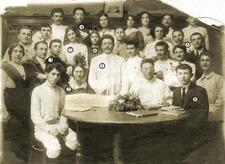
Hephzibah Menuhin
Hephzibah Menuhin was a talented pianist and a dedicated human rights activist. After a successful international career performing with her brother Yehudi, Menuhin worked with her husband to assist the poor, the homeless, and the recently ill and served as president of the Women’s International League for Peace and Freedom.
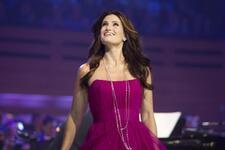
Idina Menzel
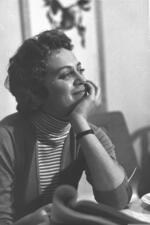
Hanna Meron (Marron)
Hanna Meron began her long acting career as a four-year-old child prodigy, appearing in children’s theater, radio plays, and films. In 1945 she joined the recently founded Cameri Theater. She helped shape the company by becoxming active in management and as a member of the repertory committee, while also rising to prominence as one of Israel’s greatest actors.
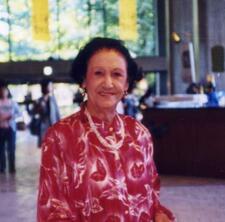
Sulamif Messerer
Sulamif Messerer was an influential ballerina who taught a generation of dancers globally. After swimming in the 1928 Soviet Olympiada, she became a prima ballerina in the Bolshoi Ballet Company. She had a long dance career and then became a renowned teacher in Russia, Japan, New York, and London.
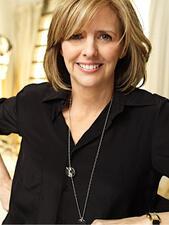
Nancy Meyers
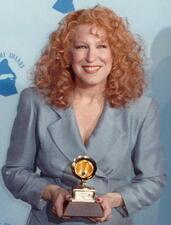
Bette Midler
Bette Midler went from canning pineapples at a factory in Honolulu to starring in over 20 films, releasing two dozen records, and touring the world with record-breaking live concert performances. Midler got her start at a gay bathhouse in New York, where she developed the campy and confident persona “The Divine Miss M.” Her career in show business spans decades, old and new media, and musical genres.
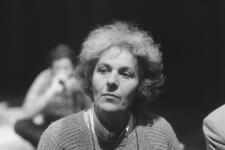
Ariane Mnouchkine
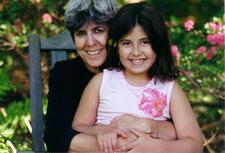
Cheryl Moch

Goapele
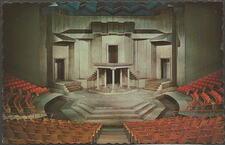
Tanya Moiseiwitsch
Regarded as one of the foremost designers in twentieth-century theater, Tanya Moiseiwitsch was an innovative designer of costumes, sets, and stages, responsible for over two hundred productions in England, Canada, and the United States. She made an impact in the male-dominated world of stage design.
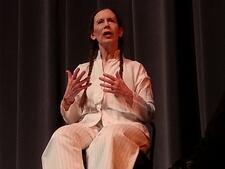
Meredith Monk
An innovator in mixed-media forms, Meredith Monk uses music, dance, drama, and film in her theater pieces. Acting as composer, choreographer, librettist, and performer, Monk creates diverse works that have been widely exhibited and have received many awards and honors.
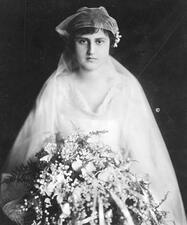
Elinor Morgenthau
Elinor Morgenthau’s accomplishments were largely invisible, as she helped her husband, Henry Morgenthau, Jr., rise to great heights in Franklin Delano Roosevelt’s administration. Because of her sharp political and social skills, she often filled in for her husband, and eventually she became Eleanor Roosevelt’s assistant in the Office of Civilian Defense.
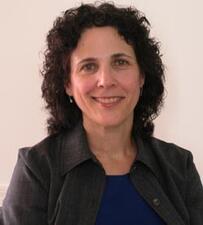
Shelley Morhaim
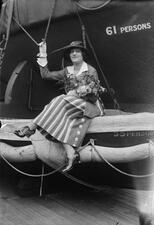
Erica Morini
Erica Morini made her violin debut at age five, playing for Emperor Franz Joseph’s birthday party. She debuted at Carnegie Hall in 1921 and spent the next several decades touring the world, often adding concerts to her overbooked schedule to accommodate her many fans. Morini retired in 1976, the same year the city of New York honored her with a lifetime achievement award.
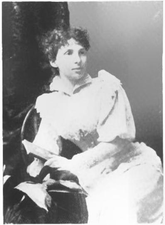
Martha Morton
As a female playwright, Martha Morton faced adversity within the male-dominated New York theater world. Despite repeated rejection, she achieved fame and prosperity. Resisting expectations of women writers, Morton took a firm hand in production, often casting and directing her own work.


